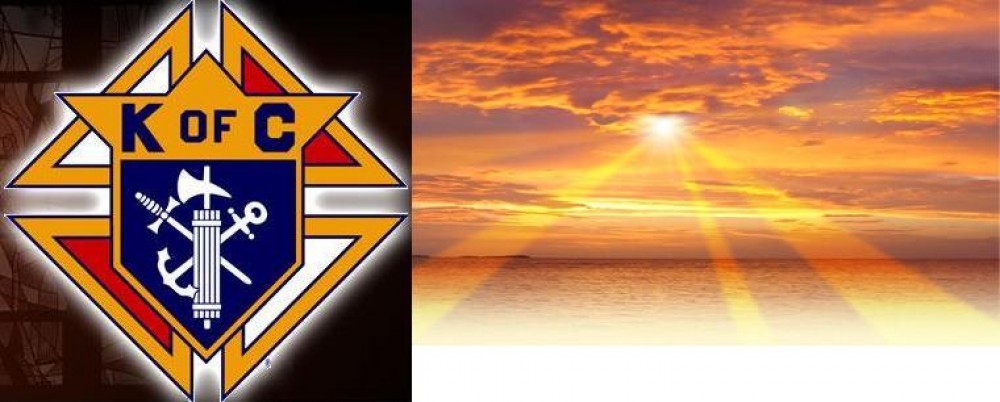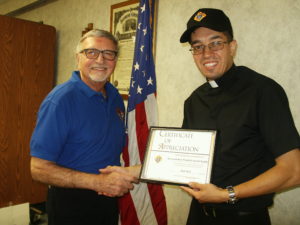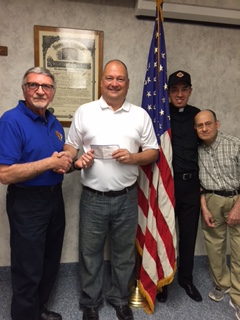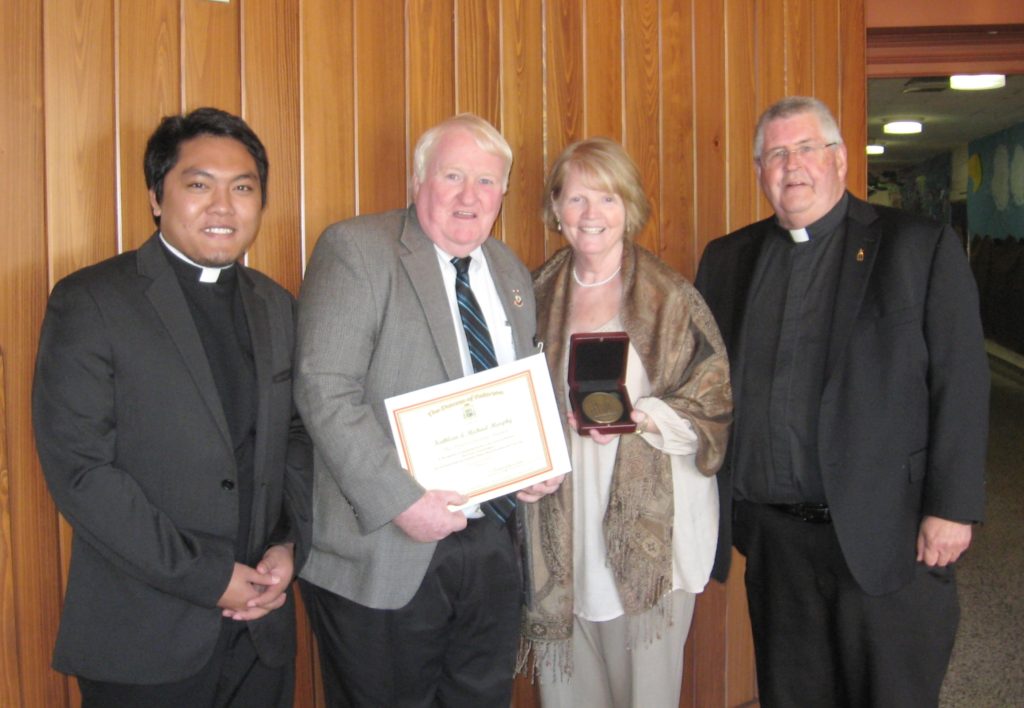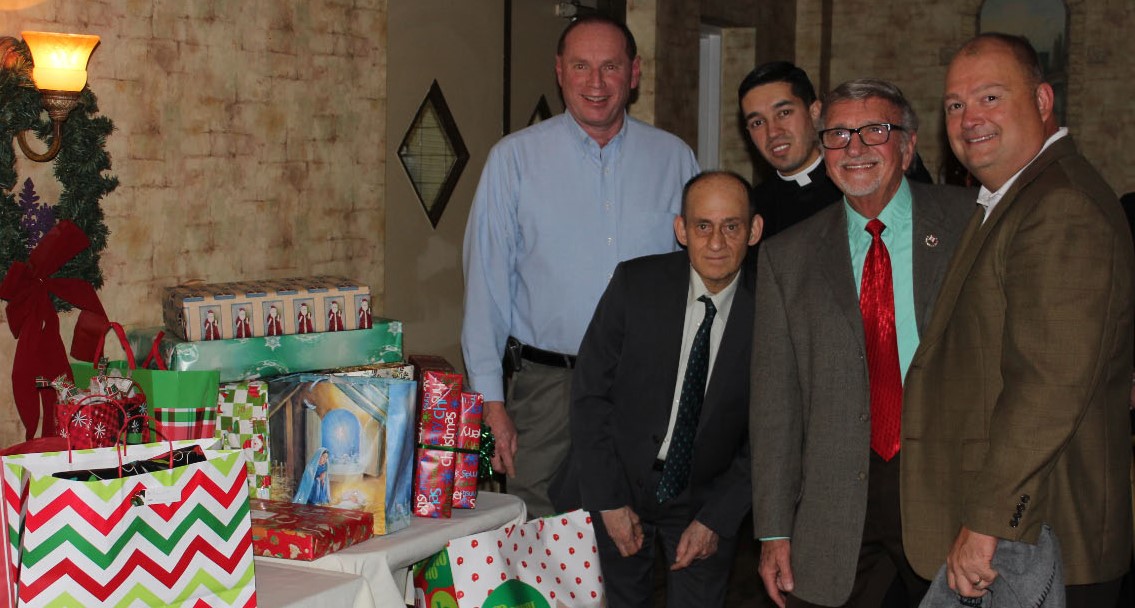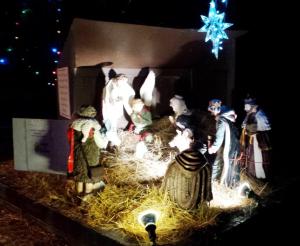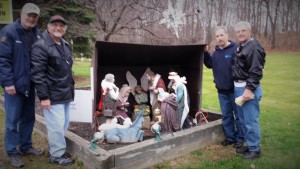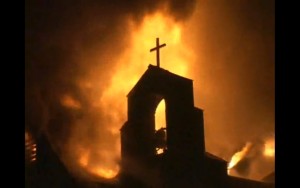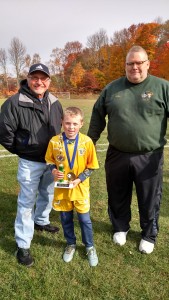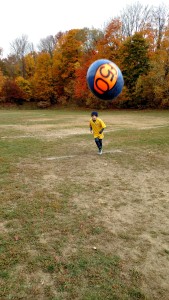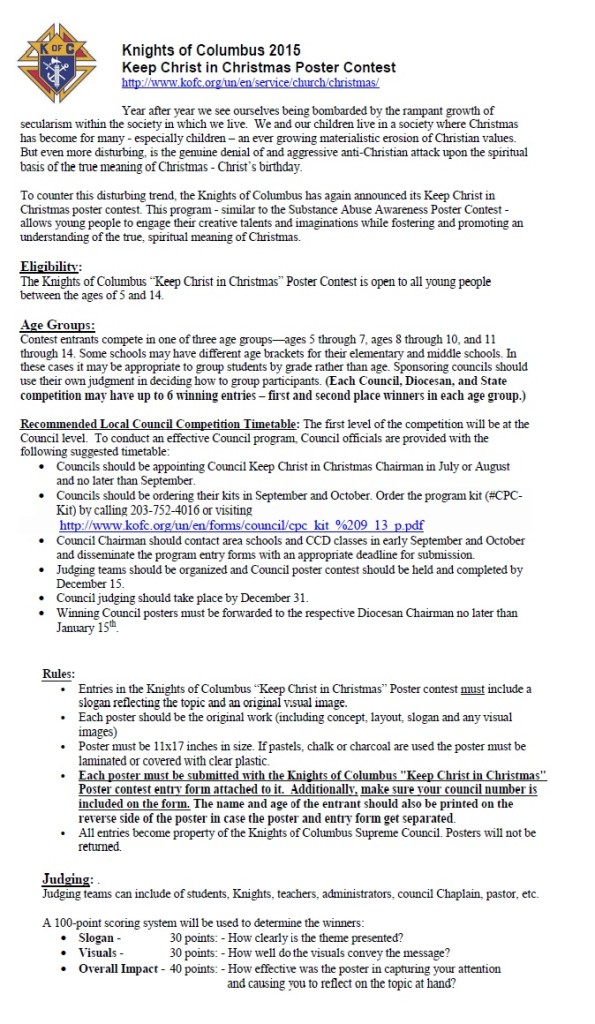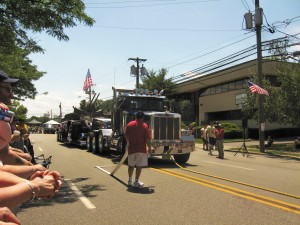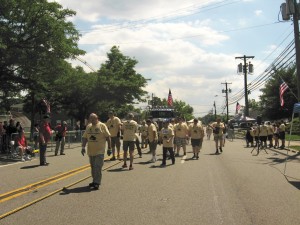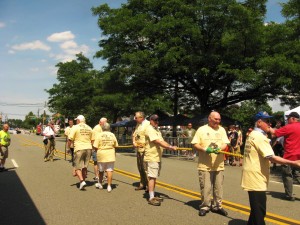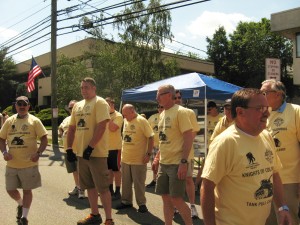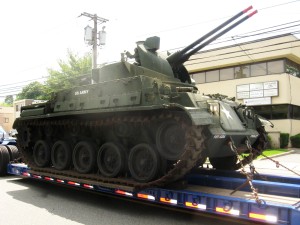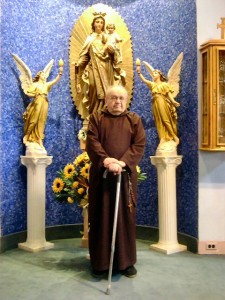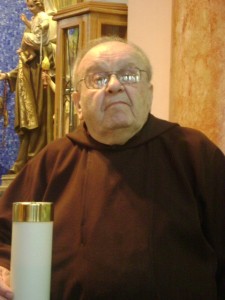Category Archives: Uncategorized
Check Presentation to DPD
THE DUNK TANK PLUNGE
Michael & Kathy Murphy Vivere Christus Award Winners
St Patrick’s Dinner
“Sure and Begorrah!” Come celebrate with us for a St. Patrick’s Day Dinner!
To be held on Saturday, March 19th at St Thomas the Apostle Church located at 5635 Berkshire Valley Rd, Oak Ridge, NJ.
Doors will open at 6:00PM and the feast includes Corn Beef and Cabbage with Potatoes & Carrots and Soda Bread. Beverages of Soda/Water, Coffee & Tea and Desert!
Admission is only $15.00/person – Children under 12 years of age only $8.00.
(Donations accepted).
For Tickets & Information: Call Mike at 908-697-7415 or Jim at 973-697-2686.
The event is being sponsored by the Knights of Columbus Council No. 5510 Oak Ridge/Milton
You don’t have to be Irish to have a good time!
Dinner with Sinatra
The Knights of Columbus Council No. 5510 Oak Ridge/Milton is sponsoring a musical event in Jefferson, “Dinner with Sinatra”. Mark your calendars for Saturday, April 9. 2016 for a night of fun, food and music with live entertainment.
The event will be held at St Thomas the Apostle Church 5635 Berkshire Valley Rd, Oak Ridge, NJ. Doors Open at 6:30PM.
Tickets are only, $17.50/person and includes Dinner, Dessert, & Live Entertainment with a dance floor. This is a BYOB event!
“The Very Best of Sinatra’s Music “Performed Live by vocalist, Jonni Drue. This is a 90 minute performance and you will hear 30+ of your favorite Sinatra hits!
Jonni Drue has performed up and down the East Coast from Vermont down to Virginia, New York, Connecticut, Pennsylvania and of course New Jersey including Atlantic City casinos.
One of the most frequent compliments Jonni receives from his sometimes unsuspecting audiences is, “I didn’t know you were singing, I thought they were playing Sinatra records!”
“I’ll Be Frank” is the #1 ranked Frank Sinatra tribute in New Jersey, New York City, & Philadelphia not to mention the #1 Sinatra singer – from GigMasters.com
For Tickets & Information: Call Fred at 973-697-5998 or Charlie at 973-657–1285
Advance ticket sales only there will be NO tickets sold at the door!
So Get Your Tickets Early They Will Go Fast!
No “Grab Bag” Gifts!
The Knights of Columbus Joseph F Lamb Council #5510 Milton/Oak Ridge opened their hearts and made Christmas special for so many at the Department for Persons with Disabilities (DPD).
Instead of a “grab bag gift” at the Christmas Social each brother knight bought a gift for one resident of DPD from a list from the resident’s wish list. The presents were wrapped and labelled for each resident to be open on Christmas morning. The thought was why give some not needed grab bag gift when you can help someone in need. That’s what the Knights of Columbus are all about!
DPD provides residential, vocational, spiritual and social support for adults with developmental disabilities and their families. DPD operates nine group homes, two supervised apartments and a vocational day program throughout Morris, Sussex and Passaic County and provides care for over 100 adults with special needs. In Jefferson Township, DPD operates Finnegan House, Columbus House and Alexander House located off of Weldon Road.
The concept of the organization is that adults with developmental disabilities can thrive better in community settings, rather than in institutional care. They encourage clients to live full lives, offering aid where needed, and support when necessary.
Knights of Columbus – Christmas Carol from Our Insurance Agent
Nativity Display at Jefferson Municipality Complex
Each year the Joseph F. Lamb Council 5510 of the Knights of Columbus of Milton-Oak Ridge has sponsored the display of the Nativity in front of the Jefferson Township Municipal Building on Weldon Road.
Grand Knight Charles Miele has expresses his appreciation to the township’s Mayor Russell Felter and Business Administrator James Leach and the Township Council for their approval and cooperation in allowing the Knights to set up their display on township property.
At this years Tree lighting ceremony, Council President Rich Yocum said ” While other towns are having their Holiday ceremonies, here in Jefferson I am proud to say we are having our “CHRiSTMAS TREE” Lighting ceremony. It is true we are blessed to living in Jefferson Township.
The Nativity scene is the representation of the birth of Christ and will remain up throughout the Christmas Season.
Let’s Break the Silence
The following is a letter from our Fr. Jhon Madrid from our parish bulletin.
For several years Nigeria has been fighting Boko Haram. This Islamic insurgency is known for kidnapping women and young girls, forcing conversion of Christians, and having destroyed hundreds of churches in the past four years. Also, since the outbreak of ISIS in Syria and Iraq, we have seen how hundreds of thousands of Christians and other religious minorities have been forced to leave their ancient homeland. It is devastating to read stories about whole parishes in exile trying to survive and keep their faith alive even though they reside in foreign refugee camps. As we have witnessed, Christian leaders have expressed grave concern about the spiritual life of their displaced communities. But what is our role as we see the suffering of our brothers and sisters? Do we break the silence?
Following the reflection of a priest friend, I would like you to imagine sitting home one day when suddenly you hear megaphones screaming from cars outside. With a hate-filled militancy, soldiers declare you must abandon your faith and pay a tax that is more than the value of your home, or leave everything behind. You are told you have one hour to decide. You have to have in mind that to stay is to die, but so is to leave. As you try to decide what to do, you hear your beloved elderly neighbor arguing with the soldiers, explaining that this is not how we are meant to live, and then you hear a shot and the screams of his daughters as they are taken away. As the father of two young daughters, you look at them, you grab your family, your elderly parents, and you run, making your way into the desert with little food, water or hope. If the terrorist get hold of your daughters, they will be sold as sex slaves. You can see their prices online.
As your heart breaks to the future and mourns for the past, you cry out to the world around you, you cry out because someone in this world must break the silence. A lot of spiritual leaders, journalist, and leaders have broken this silence. For instance, Pope Francis has spoken several times of the many Christians, who continue to be persecuted, and of the complicit silence of many powerful world leaders. Also, James Foley, a Catholic journalist, broke the silence with his pen and camera, telling the story of those who are suffering in Syria. As his mother said, “he gave his life to expose the suffering of Syrian people.” Those who beheaded him mocked his faith, but he was not silent. His voice and example continue to speak and to challenge us all. It is sad to read about Christians telling the stories of ISIS’ targeting of their home parishes, villages, and families. Sermed Ashkouri, a Syriac man living with his family in America, took his children this past summer to the town in Syria where he grew up. He wanted to show his children where many of their family members died because they refused to be silent, because they loved their faith.
Even though the beauty of fall in New Jersey arrives, the horror of Christian persecution continues undiminished in the Middle East. Christians, Yazidis, Kurds, Turkmen, Kaka’e, and other minorities are persistently persecuted. Christian groups in Egypt, Eretria, Ethiopia, Nigeria and other countries in Africa are targeted with increasing ferocity. Iraq, which had 1.5 million Christians a few years ago, today has fewer than 200,000. Recently, we have seen how thousands of Syria’s Christian population fled to Europe. We have heard about how desperation left a 3-year-old boy washed up on a Turkish beach. The religious minorities that once flourished in a vibrant and diverse Middle East are fast disappearing. The world would be wise to break the silence, wake up, and realize the solution is not in the redistribution of peoples, but rather in getting rid of the very violent extremist at its source. The world has to refuse to be silent.
It is disappointing to see that despite ISIS’ targeting of Christians and religious minorities, the US State Department refuses to grant these communities –these families- preferential treatment in the processing of visa requests. Last year, the State Department granted nearly 1,000 visas to Syrians, only 28 of whom were Christians. In Iraq, only one out of seven visas being granted is to Christians. In our parish community and as people of faith and good citizens, we have a chance to make a difference. We all can break the silence and ask presidential candidates what they will do to stop Christian persecution in the Middle East. As political campaigns are on their way, I hope we may not be defined by conversations about the Donald’s hair and the Hillary’s email, but rather by the cry to speak for the voiceless.
Fr. Jhon Madrid
Knights of Columbus Soccer Challenge
Keep Christ In Christmas Poster Contest
Flag Day Tank Pull 2015
The Tank Pull Challenge is a physical test of endurance, as competitors must make a determined effort to overcome the impossible odds of moving an immovable object – an 80,000 pound tank mounted on a flatbed truck. The clarion call for the competitor is take up the challenge and overcome the impossible!
Taking part in the Tank Pull Competition benefits the veterans and particularly the Wounded Warriors financially and materially and ensures that their service will not be forgotten.
The bottom line is supporters and contestants are pulling for our military and making a difference.
Fr. Francis Z. Majewski, O.F.M.
Father Francis lived upstairs in the huge Ringling Mansion and collected rent from us once a month with a smile and usually something funny. Well he is still around and living in Beacon, NY.
Father Francis Z. Majewski’s Story
A 69th Anniversary of Poles Deportation To Siberia
February 10, 1940, was an exceptionally cold winter day with deep snow at least five-feet deep. I was 10-years-old then and with my younger brother was on the way to the village school of Kociubinczyki, situated within the boundaries of county Koziebrodzki-Giuchowski-Strzembosz and its possessions. The distance to the school was 6 or 7 miles from our forest ranch known as Anielowka. In October 1939, the school became Soviet-Ukrainian because Poland ceased to exist as an independent state and was divided between Germany and Soviet Russia.
On our way to school, Soviet Militia men traveling in the direction to our ranch stopped us, and took us along with them. My mother was alone at home and frightened when she opened the door for these Soviet activists. Our dad had been supervising the cutting of timber in the nearby forest since early in the morning. They sent a messenger to the forest who brought dad home and then arrested him there. Mother was told to pack some things within two hours. Then we were supposed to leave for our hometown of Husiatyn, 18 miles away. On the way we (my brother and I) passed by our home with our family (parents) standing out front, but the Militia Officer ordered us to move forward to the railway station to board a freight train waiting to pick up hundreds of Poles from the district of Kopyczynce. We were certain that we are being deported to the Soviet Union and even to Siberia.
After two weeks of burdensome travel, our train stopped in a wooded area covered with at least six feet of snow. It was a region of Altai in central Siberia. We came to a place of several barracks and 15 families were assigned to each barrack. There were no beds, only bunks. At night we were invaded by hundreds of bed bugs which crawled out from the walls to suck our blood. In the morning, after interviewing all adults, the Militia agent yelled that we were actually imprisoned and no one could leave the barracks without a special permit. In reality there was no way to go anywhere as woods completely surrounded us. The Militia agents who were guarding us screamed that we were here to stay until our final days (death).
Hungry and in extremely cold weather, all men were forced to go into the woods to cut pine trees. The women followed them to pull the trees to the nearest road. In the spring and during a short summer, men would tap the pines with stents while women would fasten clay cups to catch the sap. Each woman was expected to collect 40 buckets of sap per day. But it was practically impossible because the sap flowed very slowly.
Thus we survived until October 1941, when all of a sudden a Soviet Militia agent announced that (due to the agreement between Polish and Russian governments) all Poles are granted amnesty, and as free people, may go anywhere in the Soviet Union. Consequently, we prepared to leave Siberia as soon as possible. We walked at least 20 miles to the nearest railway station and boarded a freight train heading South to Uzbekistan. It was already spring when we arrived there and without our knowing what kind of living conditions awaited us. The harsh reality was that the conditions were even worse than those in Siberia and we were actually starving.
We were somewhat relieved since the Polish Army (in exile) was in the process of organization, but we did not receive any help and so we were temporarily resettled in various collective farms to gather cotton. We started to experience very hard times, as there was no food or clean water; people and animals drank from the same muddy wells. The Uzbeks could not help us either for they also experienced hunger.
Our living quarters were under the same roof with sheep and donkeys. Any hygiene was completely lacking. Lice were crawling all over us with the majority of us suffering from typhoid, pneumonia and dysentery. I contracted two kinds of typhoid and pneumonia infections within two months. There was no medication of any kind. People were dying from hunger and infectious diseases. At last came April 1942 and we reached the Polish Military Outpost at Kenimech, a small town in Uzbekistan. My father had left us on the cotton farm and volunteered to join the Polish Infantry Division in the area. My mother received employment in the Polish military hospital laundry. Infectious diseases were raging: at least 20 soldiers died daily.
My mother would bring to us the leftovers of their meals and soon I became sick with typhoid and diarrhea. Mother placed me in a military hospital in the same bed with another unconscious boy who died during the night. When my mother checked me out from the hospital I could not stand on my feet for several days because of extreme exhaustion. After having regained some strength, my brother, and I too, were told that we were assigned to receive the Sacrament of Confirmation from Bishop Jozef Gawlina of the Polish Army who arrived from London for this purpose. Over one thousand soldiers and teenagers were confirmed in the Uzbeki desert near Kenimech. From now on we were quite sure that in a short while we would finally leave the Soviet Union to follow Polish soldiers to the Middle East through Persia (Iran), Iraq and Palestine all the way to North Africa to fight Hitler’s army at Tobruk (Libya).
However, as we were preparing to leave Uzbekistan, we encountered a very serious impediment at the railway station in Kermine. After we had already boarded the train to take us to the Caspian Sea port of Krasnowodzk, the Soviet military police were checking the documents of all Polish passengers. When the agent came to our carriage, he wanted to see the Soviet document issued to us in Siberia that entitled us to amnesty. Mother did not have this document because my father, upon entering the Polish Army, took it with him. The Polish Military authorities demanded this particular document, which showed our individual names, as proof that we were subject to amnesty. My mother’s Polish I.D. was insufficient for the Soviet agent. So we were forced to leave the train. With tears and cries we felt completely abandoned especially since it was in fact the last transport scheduled to depart from Soviet Uzbekistan. Our despair was immediately alleviated because my mother found out that there was still a Liquidation Commission in Kermine to transfer the Polish military outpost over to the Soviet authorities. Mother hastened to beg the Commission for help.
The personnel consisting of Colonel Januse, Captain Szober and their aid Zofia Turska offered my mother a position of cook which my mother accepted with great joy. When Colonel Janusz found out what happened to us at the station he immediately issued a substitute document testifying that we were a Polish military family. Thanks to the Commission we were able to leave with it for the port of Krasnowodzk and from there across the Caspian Sea for Persia (Iran).
As we arrived in the Iranian port of Pahlevi we saw a huge sign erected over the gate with white and red letterings WELCOME TO FREEDOM! On either side of the gate there stood military aids distributing boiled eggs and hot milk to newly arrived Poles fro the Soviet Union.
Right away we were accommodated in military tents equipped with showers and disinfectants. Upon leaving the showers we threw out our lice-infested clothes and received the new ones donated by the American Relief Service. In March 1943 we finally left Tehran for Ahwaz and from there for Karachi in Pakistan. In July of the same year, we were on the Indian Ocean on the way to British East Africa, to several refugee camps in Northern and Southern Rhodesia. Suddenly the ships loudspeakers announced in Polish from the BBC in London, a most unexpected information that General W. Sikorski, the Commander-in-Chief of the Polish Army, perished in a tragic plane crash over Gibraltar. An immense sadness befell all of us and everybody was crying, because it was the General who liberated us from the Soviet yoke.
I spent thirteen years in Africa: five years in Zambia and Zimbabwe and eight years in South Africa. My mother died in Zambia and is buried in Lusaka. In 1956 I decided to enter the Order of Capuchin Friars in U.S.A. After the completion of theological studies, I was ordained to the priesthood in 1964. Since I could not return to a Poland occupied by a Communist regime, and also since my hometown remained in Eastern Poland that had been annexed by the Soviet Union; I chose to stay in America and continued to be a perpetual refugee.
Fr. Francis Z. Majewski, O.F.M., Cap.
